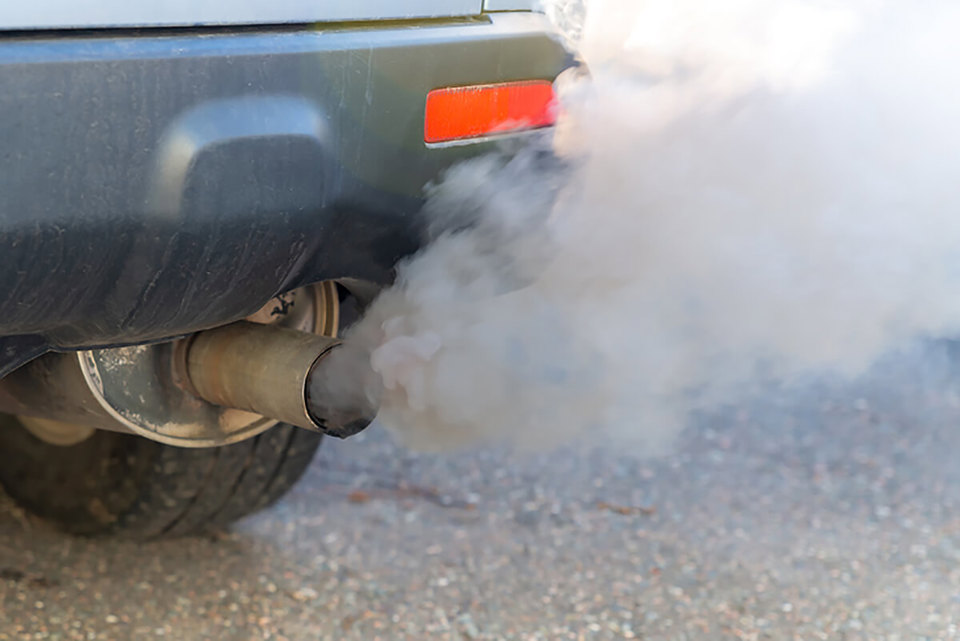Air pollution could be the root cause of hundreds of road accidents, new research suggests. Analysis by Lutz Sager, a PhD student at the London School of Economics (LSE), has found that small increases in the level of nitrogen dioxide in the air relate to a rise in the number of accidents on UK roads.
Sager’s results, based on data for the period between 2009 and 2014, show that a rise in the average concentration of nitrogen dioxide of just one microgramme per cubic metre is sufficient to increase the average number of accidents each day by 2%, with the biggest effect occurring in cities.
Previous studies have shown air pollution to negatively affect the productivity of agricultural workers and leave students struggling to concentrate on their studies.
Sager told Fleet News: “Although it has already been shown that air pollution adversely affects human health and the ability to carry out mental tasks, this is the first published study that assesses the impact on road safety.”
The analysis identified a causal effect of air pollution on road accidents, but Sager admitted he can only speculate about what triggers the link.
“My main theory is that air pollution impairs drivers’ fitness,” he said. “However, other explanations are possible such as air pollution causing physical distractions, perhaps an itching nose, or limiting visibility.”
Air pollution can result from many pollutants, including carbon monoxide, nitrogen dioxide, sulphur dioxide, small particulate matter and ozone. Many of these pollutants are caused by the same source.
Sager said: “My analysis suggests that the causal effect of air pollution on road traffic accidents measured in this study more likely stems from nitrogen dioxide or other pollutant gases rather than particulate matter.”
He divided the UK into a grid of 32 areas each covering about 3,000 square miles. He calculated that in the area containing west London, which suffers from some of the highest levels of air pollution, a cut of about 30% in the concentration of nitrogen dioxide could reduce the number of road accidents every day by almost 5%.
Sager’s research comes as road casualty statistics, issued by the Department for Transport (DfT) show there were 1,730 deaths in 2015, a decrease of 3% compared with 2014. The number of people seriously injured in reported road traffic accidents also fell by 3% to 22,144 in 2015.
The DfT estimated that the total cost of all road accidents, including unreported casualties, was £35.5 billion.
Sager said: “These additional costs only strengthen the case for reducing air pollution, particularly in congested cities.”
The RAC Report on Motoring shows a clear majority of drivers (66%) believe stronger action needs to be taken to reduce pollution from vehicles in the areas where air quality is at its worst.
More than half (57%) of motorists also support the introduction of charges on diesel vehicles which enter areas with poor air quality, unless they meet the latest emission standards.
A similar percentage (55%) said they would support banning more polluting vehicles from entering areas with the worst air quality.
London is consulting on the earlier introduction of the Ultra-Low Emission Zone (ULEZ), while the most polluting commercial vehicles could also be charged to enter Birmingham, Leeds, Nottingham, Derby and Southampton by 2020.
A majority of motorists (55%) told the RAC they support such proposals – only 12% said they were against them. However, the introduction of charges for ‘all diesel vehicles’ entering areas with the poorest air quality received the least support. Only 42% of drivers thought this was a good idea versus 30% who did not.
Interestingly, more than half (51%) said they expected their next car to be petrol, compared to 53% in 2015, while 28% will opt for diesel. Four in 10 (41%) say they will avoid diesels, and of this group more than a third (35%) cite pollution as the main reason.




















Login to comment
Comments
No comments have been made yet.